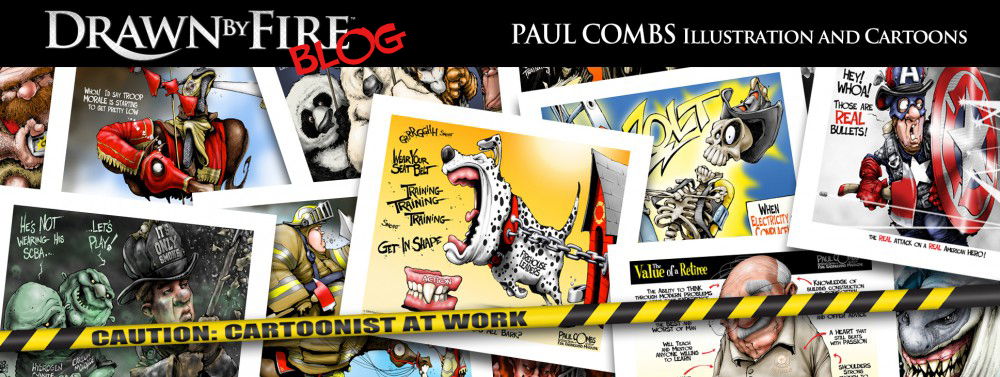Monthly Archives: November 2014
LIKE A FLYING BRICK
 Tankers are big, they are bulky, top heavy, and were never intended to be driving at a high rate of speed. However, when you mix adrenaline, inexperience, and complacency, these vital resources can become killers.
Tankers are big, they are bulky, top heavy, and were never intended to be driving at a high rate of speed. However, when you mix adrenaline, inexperience, and complacency, these vital resources can become killers.
I’ve attached a link to a great Fire Engineering article from 1998 by Dale Perry that is a great learning and training resource.
http://www.fireengineering.com/articles/print/volume-151/issue-3/fe…
Your tanker is not a Porsche, don’t expect it to drive like one!
Drive safe. Drive smart!
Click link below to see more of Paul’s work or to buy prints:
http://www.artstudioseven.com/page-LE_Prints.htm
MERRY THANKSFORTHESAVINGS
FALL COLORS
THE CONDUCTOR
 Leading a crew of diverse personalities can be challenging. As a fire officer it is your job to make sure everyone on your team is being as productive as possible, even if you have to adjust how you treat each individual to do so. The more effective you are at individualizing your leadership style, the more effectively your subordinates will carry out their assigned duties. Try evaluating your crew members by these five criteria:
Leading a crew of diverse personalities can be challenging. As a fire officer it is your job to make sure everyone on your team is being as productive as possible, even if you have to adjust how you treat each individual to do so. The more effective you are at individualizing your leadership style, the more effectively your subordinates will carry out their assigned duties. Try evaluating your crew members by these five criteria:
1. What personality type is each of your subordinates? By identifying your crew’s personality types, you can adapt your leadership style to their way of working. You may need to be more sensitive with some, while others respond to a firmer and straightforward approach.
2. Get to know your crew. Taking the time to know your crew as individuals will go a long way in getting the best out of them.
3. Set obtainable but high-standard goals. When there are no goals, or the goals are set so high they can never be achieved, people become disgruntled and bored – producing mediocre results. There is nothing wrong with pushing your crew to meet high standards; in fact, they will respect you and each other for the challenge. Just make sure those goals can be reached, and that they are given recognition and credit when they do so. Nothing builds crew unity like achieving a worthy goal.
4. Know what your crew wants from you. As their officer, be willing to ask what your crew wants from you. Let them know that what they know and think is important to you and that you are truly interested in their participation. Nothing builds a sense of ownership better than having a stake in what is happening. Not all ideas are going to be good ones, but let them know that you are interested in what they are saying.
5. Don’t take criticism personally. YOU WILL NOT PLEASE EVERYBODY, so stop trying, and stop taking it personal when you can’t. Nobody likes to be rejected, but it will happen. Lead those that want to be lead, most naysayers will follow along and buy into the program once they begin to see the positive results. Managing people is not easy, but you must remember that this isn’t about you anymore. You are in a position to lead; not push, or pull, or bash, trip, shove, or force. Get to know your people and give them what they need to achieve, and they will give you the respect and trust you need to excel as their officer.
You cannot play every instrument in an orchestra, but you can create beautiful music when everybody is performing at their best. You are the conductor now – conduct.





